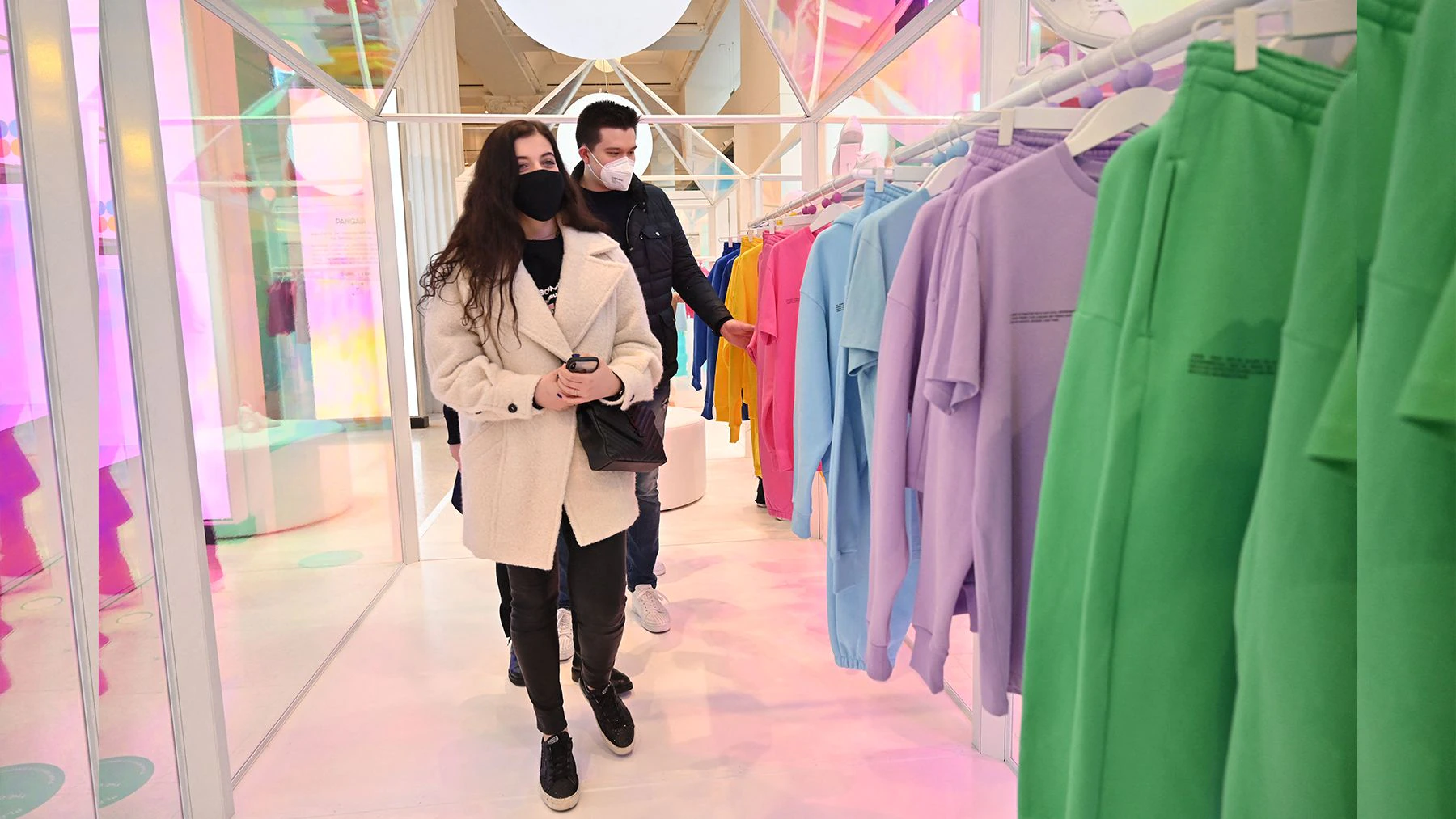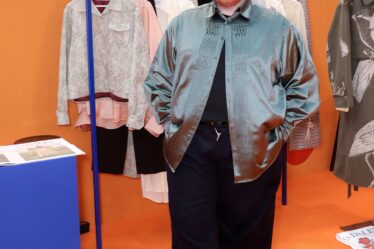
A couple of weeks ago, cult brand Pangaia briefly disappeared from the website of British retailer Selfridges. The label was caught up in a broad investigation to ensure Selfridges remained compliant with a wide-ranging and fast-growing set of sanctions imposed by Western governments in response to Russia’s invasion of Ukraine.
In the case of Pangaia, the investigation came shortly after a person linked to co-founder Miroslava Duma was named on US, UK and EU sanctions lists. That hasn’t affected the brand, which is UK-based and not the subject of any government action, a conclusion that prompted Selfridges to swiftly reinstate the label on its website.
Pangaia — whose investors include Regeneration, Dreamers, Valor and Mirabaud — said it had no business operations in Russia and has never received funding from anyone on the international sanctions list. But the scrutiny Pangaia and other brands have faced reflects broader uncertainty in the fashion market over how to grapple with a wave of sanctions against Russian entities and individuals that is creating a swelling compliance challenge, as well as new reputational risks for brands and retailers.
A Selfridges spokesperson said the retailer is complying with all UK government guidelines and will continue to review brands and products to ensure compliance.
The complexity of that task is only growing, as the number of individuals and entities on sanctions lists continues to increase and restrictions introduced by major jurisdictions only partially overlap. On Thursday, the US and UK both introduced a series of new sanctions, with the UK adding Russian state-backed diamond producer Alrosa to its sanctions list.
The sanctions we’re seeing in response to the Russian invasion of Ukraine are simply unprecedented.
“The sanctions we’re seeing in response to the Russian invasion of Ukraine are simply unprecedented,” said Caroline Brown, a partner at law firm Crowell & Moring. “Any board, any CEO, anyone in a company’s management should really be paying attention to these sanctions risks.”
For brands, the issues are multi-faceted and fast-evolving. The first sign of fallout for the fashion industry was a cascading exodus from the Russian market, as financial restrictions and logistical snarls made it increasingly difficult to operate as normal. By the time the US, EU and UK had banned the export of luxury goods to Russia in mid-March, many major fashion labels had already announced their suspension of operations in the country.
Now brands must contend with unwinding trading relationships and stepping up vigilance to ensure their products aren’t sold to a counter-party intending to ship to Russia. There’s also the thorny question of what qualifies as a luxury good, which requires careful analysis of each jurisdiction’s sanctions guidance.
“I think it’s gone from a constant yellow to red in terms of policing,” said Douglas Hand, a partner at Hand Baldachin & Associates. The firm has seen an increase in calls as a result of the new sanctions measures, though the volume of inquiries haven’t been as intense as when the pandemic first hit, Hand said.
It’s an issue that goes beyond legal risk, creating fresh challenges for brands in terms of when and how to communicate their actions to customers. The industry’s initial response to the war in Ukraine — most often silence — attracted some criticism, but also reflected the delicate position many companies found themselves in, trying to protect employees on the ground and business interests in Russia while also signalling support for Ukraine.
There are new individuals added to lists, new sanctions, new factors presenting themselves on a day-by-day basis and so you have to very much stay on alert.
Uniqlo-owner Fast Retailing became a high-profile example of the pressures facing brands, both logistically and in the court of public opinion, after it reversed course on a decision to continue operating in Russia earlier this month. Those tensions have hardly become any simpler as sanctions mount, with brands needing to weigh both legal and reputational risks when making decisions on business, partners and investors.
Some brands have already indicated they will go beyond the letter of sanctions. Earlier this month, America’s largest diamond retailer, Signet Jewelers, said it would no longer buy stones mined in Russia, a decision that went beyond requirements at the time. Signet, which owns Kay Jewelers and Zales, said the move was rooted in a years-long effort to ensure its supply chain was ethical.
“We… have a very well-respected responsible sourcing programme. That’s one of the things that customers play back to us in survey results,” CEO Virginia Drosos said on a call with analysts two weeks ago, noting that the impact of the company’s decision to suspend Russian diamonds on its supply chain would likely be small. “We’re taking a bigger stand on this issue because we think that it’s so important,” she said.
Perhaps the most challenging element for brands is staying on top of the near-daily updates to lists of sanctioned persons and entities. While many brands already have processes in place to screen clients, it’s an area that has gained sudden increased importance to ensure businesses don’t inadvertently transact with a sanctioned person.
One of the first things companies should do in the current environment is establish robust sanctions screening on end customers, Crowell & Moring’s Brown said. The complexity of the situation also makes it advisable for companies to seek outside, expert counsel, she added. Many companies may also want to establish dedicated crisis teams, tasked with monitoring the situation and coordinating the practicalities of managing suspended businesses in Russia and unwinding trading relationships.
“It’s going to require constant vigilance and flexibility on the part of brands, because it’s an evolving situation and it’s not the sort of thing you can address once,” said Susan Scafidi, founder and director of the Fashion Law Institute at Fordham Law School. “There are new individuals added to lists, new sanctions, new factors presenting themselves on a day-by-day basis and so you have to very much stay on alert.”
Lauren Sherman contributed to this article.



